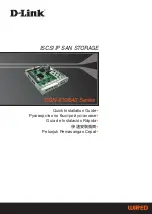C8051F930-DK
Rev. 0.5
17
7.5. Switches and LEDs
Three push-button switches are provided on the target board. Switch SW1 is connected to the reset pin of the
C8051F930. Pressing SW1 puts the device into its hardware-reset state. Switches SW2 and SW3 are connected to
the C8051F930’s general purpose I/O (GPIO) pins through headers. Pressing SW2 or SW3 generates a logic low
signal on the port pin. Remove the shorting block from the header (J8) to disconnect the switches from the port
pins. The port pin signal is also routed to pins on the J2 and P1 I/O connectors. See Table 1 for the port pins and
headers corresponding to each switch.
Two touch sensitive (contactless) switches are provided on the target board. The operation of these switches
require appropriate firmware running on the C8051F930 MCU that can sense the state of the switch. See Section
6.3. "Touch Sensitive Switch Example‚" on page 11 for details about example source code.
Five power LEDs are provided on the target board to serve as indicators. Each of the two regulators has a red LED
used to indicate the presence of power at the output of the regulator. A red USB Power LED turns on when a USB
cable is plugged into the USB connector P3. One power LED is also added to each of the two primary supply nets
powering the MCU (VDD/DC+ and VBAT). The LEDs connected to the supply nets may be disabled by removing
the shorting blocks from J1 and J5.
Two LEDs are connected to GPIO pins P1.5 and P1.6 for use by application software. See Table 1 for the port pins
and headers corresponding to each LED.
A potentiometer (R15) is also provided on the target board for generating analog signals. Place a shorting block on
J16 to connect the wiper to P0.6/CNVSTR. The header J15 allows the negative terminal of the potentiometer to be
tied to GND or to P1.4. When tied to GND, the potentiometer is always enabled and will draw a measurable
amount of supply current. When tied to P1.4, it only draws current when P1.4 is driving a logic 0 and draws no
current when P1.4 is driving a logic 1.
Table 1. Target Board I/O Descriptions
Description
I/O
Header(s)
SW1
Reset
none
SW2
P0.2
J8[5–6]
SW3
P0.3
J8[7–8]
P2.0 (Touch Sense Switch)
P2.0
none
P2.1 (Touch Sense Switch)
P2.1
none
Red LED (P1.5)
P1.5
J8[1–2]
Yellow LED (P1.6)
P1.6
J8[3–4]
Red LED (VDD/DC+)
VDD/DC+ Supply Net
J5
Red LED (VBAT)
VBAT Supply Net
J1
Red LED (USB Power)
USB VBUS
none
Red LED (+1 VD Power)
+1 VD Regulator Output
none
Red LED (+3 VD Power)
+3 VD Regulator Output
none
Potentiometer (R15)
P0.6/P1.4
J15, J16
Downloaded from
Elcodis.com
electronic components distributor


















